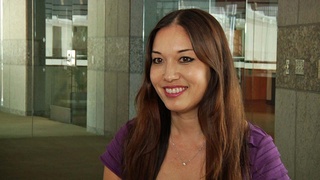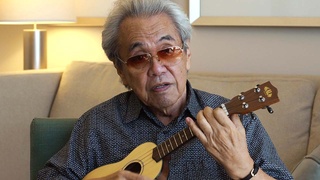Interviews
Trying to convey the meaning of the songs
When I sing…I just feel like a basic—a human being—a lot of the music and a lot of the lyrics are very, very…human, and when I mean by that is they…they possess a lot of feeling and you know, whenever you hear these lyrics and whenever you hear someone sing them, they make you feel a certain way; they can make you feel happy, they can make you feel sad, they can make you remember your past, think about your future, you know, they can make you cry, they can make you smile, it’s just, you know, a lot of things, you know, human feelings that a lot of these songs possess, and whenever I’m on the stage as an artist and as a singer, it’s my job to make sure that those feelings are portrayed correctly and they are, you know, given to the audience in a very meaningful way, as much as possible. And I always, you know, take in all of the lyrics and think about what I’m saying and singing, and I always have an image in my head of those lyrics so that they can, you know…you know, get to the listener’s ears and, you know, make them feel something. And that’s a big thing.
Date: March 30, 2010
Location: California, US
Interviewer: Yoko Nishimura
Contributed by: Interview by Watase Media Arts Center, Japanese American National Museum. Courtesy of Japanese American Cultural & Community Center
Explore More Videos


Re-examining Identity
(1941-2018) Japanese Canadian photojournalist and activist

Culture is an important part of one's identity
Jewish Japanese American journalist

How he got on the All-Navy show on Ed Sullivan
(b. 1934) Ukulele player from Hawaii





Conflicted about immigrating to America (Japanese)
(b. 1925) War bride

Defining "Nikkei"
(1941-2018) Japanese Canadian photojournalist and activist

Unique Identity from Having Multiple Backgrounds
(b. 1938) Philipines-born hikiagesha who later migrated to the United States.

Growing up Japanese in Hawaii
(b. 1952) Former banking executive, born in Hawaii



Parents identification as Peruvian Okinawan
Okinawan American whose parents are from Peru.
